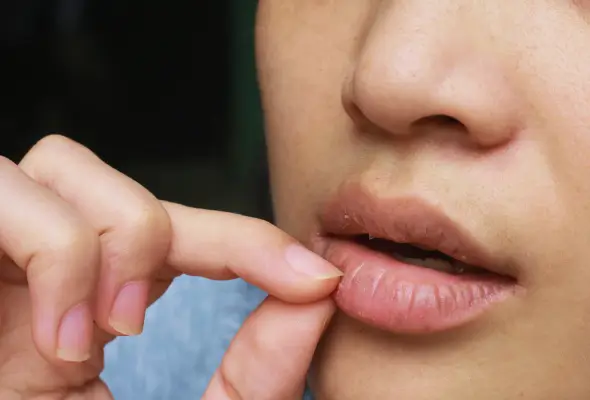Birth control is widely used to prevent pregnancy and manage hormonal imbalances, but many people wonder if it can cause side effects like dry mouth. Dry mouth, also known as xerostomia, happens when your body doesn’t produce enough saliva, leading to discomfort, bad breath, and even dental issues.
Recommended: Can You be on Birth Control and Donate Eggs?
Since hormonal changes can affect various body functions, some believe birth control may play a role in reducing saliva production. But is there real evidence behind this?
In this blog, we’ll explore the possible connection between birth control and dry mouth, other potential causes, and simple ways to manage the condition.
What Is Dry Mouth?
Dry mouth, or xerostomia, is a condition where the salivary glands don’t produce enough saliva to keep the mouth moist. Saliva is essential for oral health as it helps wash away food particles, neutralize acids, and prevent bacteria buildup. When there isn’t enough saliva, it can lead to discomfort, bad breath, difficulty chewing or swallowing, a sore throat, and even cracked lips or a dry tongue.

This condition can have several causes, including medication side effects, dehydration, stress, and certain medical conditions like diabetes or Sjögren’s syndrome. Some medications, including birth control, have been linked to changes in saliva production, which raises the question of whether hormonal contraceptives could contribute to dry mouth.
Recommended: Top 10 Myths and Misconceptions of Family Planning
Causes of Dry Mouth
Dry mouth can be caused by several factors, ranging from medication side effects to underlying health conditions. Here are some common causes and how they contribute to reduced saliva production:
1. Medications
Many prescription and over-the-counter medications list dry mouth as a side effect. These include birth control pills, antidepressants, antihistamines, decongestants, diuretics, and medications for high blood pressure. Some of these drugs affect the nervous system, reducing the body’s ability to produce saliva.
2. Dehydration
Not drinking enough water or losing fluids through sweating, vomiting, diarrhea, or excessive caffeine and alcohol consumption can lead to dry mouth. When the body is dehydrated, saliva production decreases, making the mouth feel dry and sticky.
Recommended: Do You Still Have a Luteal Phase on Birth Control?
3. Stress and Anxiety
Emotional stress and anxiety can trigger a temporary reduction in saliva flow. This happens because the body’s fight-or-flight response shifts energy away from digestion and saliva production, leading to dryness in the mouth.
4. Hormonal Changes
Fluctuations in hormones, such as those during pregnancy, menopause, or while taking hormonal birth control, can impact saliva consistency and production. Some people experience dry mouth when using contraceptives due to changes in fluid retention and glandular function.
5. Medical Conditions
Certain diseases and health conditions can interfere with saliva production. These include:
- Diabetes – High blood sugar levels can lead to dehydration and reduced saliva flow.
- Sjögren’s Syndrome – An autoimmune disorder that attacks the salivary glands, leading to chronic dry mouth.
- Nerve Damage – Injuries or surgeries that affect the head and neck can disrupt saliva production.
6. Smoking and Tobacco Use
Smoking or using chewing tobacco can irritate the salivary glands and reduce saliva production over time. Additionally, tobacco products can increase the risk of gum disease, further worsening dry mouth symptoms.
Recommended: What Happens If You Take Expired Birth Control Pills?
How Birth Control Affects the Body
Birth control, particularly hormonal contraceptives like pills, patches, injections, and IUDs, works by regulating hormone levels in the body to prevent pregnancy. These contraceptives primarily contain synthetic versions of estrogen and progesterone, which influence the reproductive system by stopping ovulation, thickening cervical mucus, and altering the uterine lining to prevent fertilization.
Beyond pregnancy prevention, hormonal birth control can also affect other bodily functions. Many users experience changes in their skin, mood, weight, and menstrual cycle due to hormonal fluctuations. Some people also report side effects like headaches, nausea, or changes in fluid retention, which can impact hydration levels. Since hormones play a role in regulating saliva production, there is speculation that birth control may contribute to dry mouth.
Recommended: How to Choose a Birth Control Method Without Side Effects
While not everyone experiences this side effect, the body’s response to hormonal shifts varies from person to person.
The Link Between Birth Control and Dry Mouth
Many people wonder whether birth control can cause dry mouth, and while it’s not a widely recognized side effect, there is a possible connection. Hormonal birth control methods—such as pills, patches, injections, and IUDs—contain synthetic estrogen and progesterone, which can influence various bodily functions, including saliva production.

One way birth control may contribute to dry mouth is through hormonal changes that affect the body’s fluid balance. Estrogen plays a role in maintaining moisture levels in the body, including saliva production. When hormone levels fluctuate due to birth control, some individuals may experience decreased saliva flow, leading to dryness in the mouth.
Additionally, some birth control users report mild dehydration as a side effect, which can also contribute to dry mouth. Changes in fluid retention, increased thirst, and reduced saliva secretion may be linked to how the body adjusts to hormonal contraceptives.
Recommended: Family Planning for Women Over 30
However, it’s important to note that dry mouth is not a common or well-documented side effect of birth control. Other factors, such as stress, dehydration, or medication interactions, may also be responsible. If you experience persistent dry mouth while using birth control, staying hydrated, practicing good oral hygiene, and consulting a healthcare provider can help manage the symptoms.
How to Prevent and Manage Dry Mouth
If you’re experiencing dry mouth, whether due to birth control or other factors, there are several ways to prevent and manage it effectively. Here are some practical tips:
1. Stay Hydrated
Drinking plenty of water throughout the day is one of the best ways to combat dry mouth. Aim for at least 8 glasses daily and sip water frequently to keep your mouth moist.
Recommended: How to Discuss Family Planning with Your Partner
2. Chew Sugar-Free Gum or Suck on Sugar-Free Candies
Chewing gum or sucking on sugar-free candies stimulates saliva production, helping to keep your mouth hydrated. Look for products containing xylitol, which also helps prevent cavities.
3. Maintain Good Oral Hygiene
Brushing your teeth twice a day with fluoride toothpaste and flossing daily can help prevent oral health issues linked to dry mouth. Using an alcohol-free mouthwash designed for dry mouth can also help keep your mouth fresh and moisturized.
4. Use a Humidifier
If dry air contributes to your dry mouth, especially while sleeping, using a humidifier can add moisture to the air and help prevent dryness.
5. Avoid Dehydrating Substances
Limit your intake of caffeine, alcohol, and salty or spicy foods, as these can contribute to dehydration and worsen dry mouth symptoms.
6. Consider Saliva Substitutes or Sprays
Artificial saliva products and dry mouth sprays are available over the counter and can provide temporary relief by keeping the mouth moist.
Recommended: Best Fertility Tracker to Avoid Pregnancy
7. Consult Your Doctor
If dry mouth persists, discuss it with your healthcare provider. They may suggest adjusting your birth control method or exploring other potential causes and treatments.
By making these small changes, you can effectively manage dry mouth and prevent discomfort while maintaining overall oral health.
When to See a Doctor

Occasional dry mouth is usually not a cause for concern, but if it becomes persistent or starts affecting your daily life, it may be time to consult a healthcare professional. Here are some signs that indicate you should see a doctor or dentist:
- Persistent Dryness – If your mouth feels consistently dry despite staying hydrated and making lifestyle adjustments, it could be a sign of an underlying issue.
- Difficulty Swallowing or Speaking – Severe dry mouth can make it hard to chew, swallow, or even talk comfortably.
- Bad Breath or Changes in Taste – Chronic dry mouth can lead to bad breath and an altered sense of taste, which may indicate an imbalance in saliva production.
- Increased Tooth Decay or Gum Problems – Saliva helps protect teeth from cavities and gum disease. If you notice an increase in dental issues, dry mouth could be a contributing factor.
Recommended: Can Contraceptive Implant Cause Infertility?
- Mouth Sores or Infections – A lack of saliva can create an environment for infections, such as oral thrush, which appears as white patches in the mouth.
- Other Unexplained Symptoms – If dry mouth is accompanied by fatigue, joint pain, or dry eyes, it may be linked to a medical condition like Sjögren’s syndrome or diabetes.
If you suspect your birth control is causing dry mouth, your doctor can help determine if switching to a different contraceptive method or adjusting your dosage could improve your symptoms. Addressing dry mouth early can prevent complications and improve your overall comfort and oral health.
Conclusion
Dry mouth can be an uncomfortable and sometimes frustrating condition, with various possible causes, including medication side effects, dehydration, stress, and underlying health issues. While hormonal birth control is not a widely recognized cause, it may contribute to dry mouth in some individuals due to its effects on fluid balance and hormone levels.
If you experience persistent dry mouth, simple lifestyle changes such as staying hydrated, chewing sugar-free gum, maintaining good oral hygiene, and avoiding dehydrating substances can help. However, if symptoms persist or start affecting your daily life, consulting a healthcare professional is important to rule out underlying conditions and find the best treatment.
Understanding the potential link between birth control and dry mouth can help you make informed decisions about your health. By staying proactive and addressing symptoms early, you can maintain both your oral and overall well-being.
